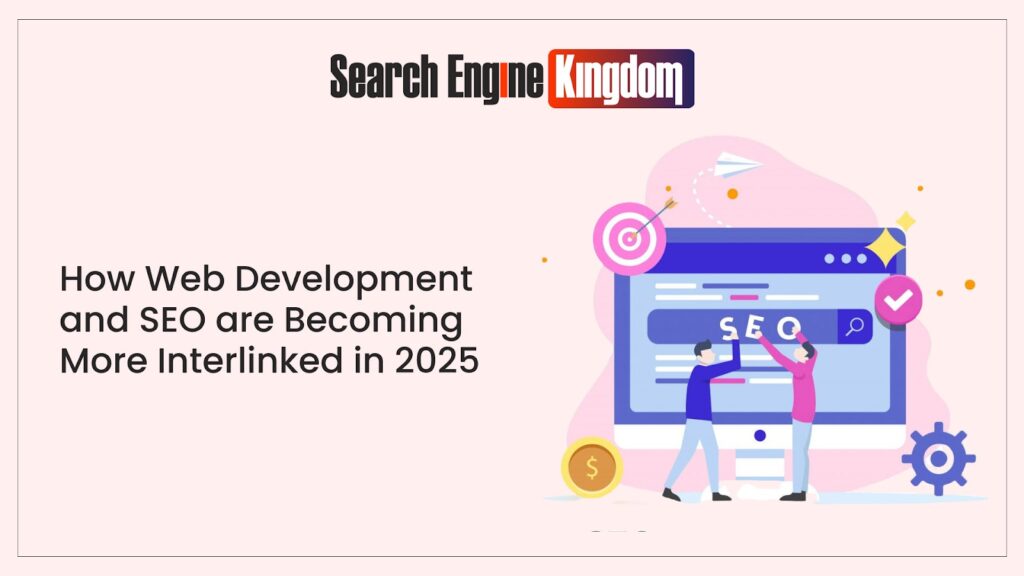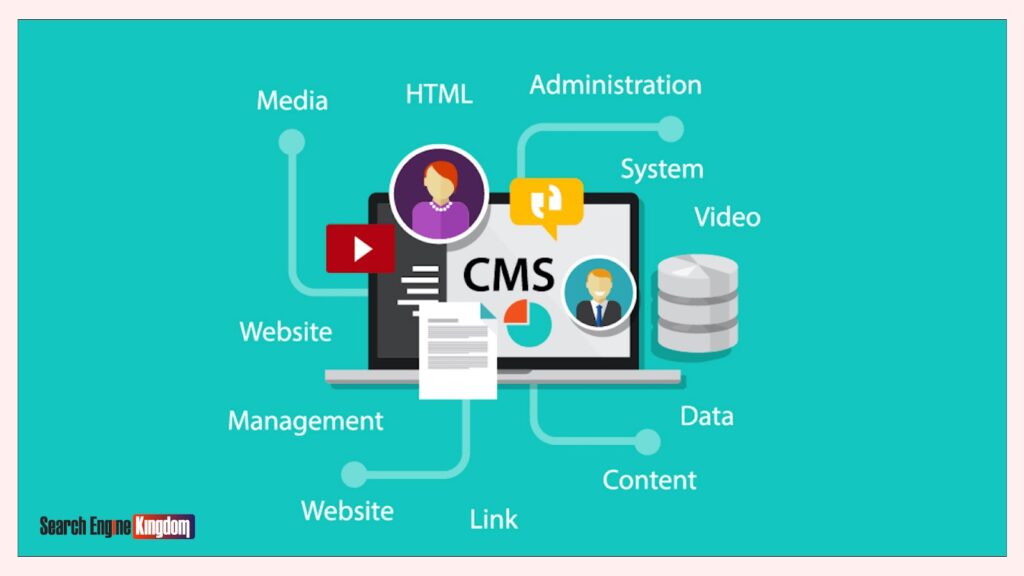
In 2025, the lines between web development and SEO are becoming increasingly blurred. Once thought of as two separate disciplines, web development and SEO are now interwoven into a single, cohesive process that impacts every aspect of how a website performs. Whether you’re building a new website or optimizing an existing one, understanding how these two work together is crucial for online success.
Let’s dive into why web development and SEO are becoming more interlinked and what this means for your website.
1. SEO-Driven Web Design is the Future

In the past, web developers focused primarily on aesthetics and functionality, while SEO specialists handled optimization. However, in 2025, SEO-driven design is becoming the norm. Search engines like Google now prioritize user experience (UX) signals, such as page load speed, mobile responsiveness, and overall usability. Web developers must ensure that the technical foundation of a site aligns with SEO best practices.
Pro Tip: When designing your site, keep SEO in mind from the start. Things like site structure, page speed, and mobile-friendliness all play a role in search rankings. A well-coded, user-friendly website is essential for SEO success.
2. Site Speed and Mobile Optimization

Web development has a direct impact on site speed and mobile optimization—two factors that are crucial for both user experience and SEO. Slow-loading websites can drive users away and hurt your rankings. Google’s mobile-first indexing means that mobile optimization isn’t optional anymore, it’s a requirement.
Pro Tip: Collaborate with developers to implement tools like lazy loading for images, compress files, and leverage browser caching to improve page speed. Ensure your website is fully optimized for mobile devices, offering a seamless experience across all screen sizes.
3. Technical SEO Integration
In 2025, technical SEO is no longer just a set of tasks left to the SEO team; it’s a critical part of the web development process. Things like schema markup, structured data, and clean coding are essential for search engines to properly index and rank your site. Developers play a key role in implementing these technical aspects from the very beginning.
Pro Tip: Ensure your developer uses structured data (like schema markup) to provide search engines with clear information about your content. This can improve your visibility in rich snippets and enhance your chances of ranking higher.
4. Content Management Systems (CMS) & SEO Collaboration

Content Management Systems like WordPress, Shopify, and Squarespace simplify website management and provide powerful SEO capabilities. Web developers and SEO specialists must work closely together to choose the right CMS and implement SEO-friendly practices. From optimizing URL structures to ensuring proper metadata management, your CMS should be set up to maximize SEO efforts.
Pro Tip: Choose a CMS that allows easy integration with SEO plugins (like Yoast or RankMath) and supports customization for things like meta tags, XML sitemaps, and responsive design.
5. User Experience and SEO Are Now One

In 2025, Google’s algorithm updates continue to prioritize user experience. Factors such as site navigation, content accessibility, and intuitive design are just as important as keyword usage. Web developers and SEO specialists must collaborate to ensure the website is not only optimized for search engines but also provides a smooth and engaging user experience.
Pro Tip: Work with your development team to ensure that your site is easy to navigate, visually appealing, and accessible for all users. A great user experience can keep visitors on your site longer, reduce bounce rates, and improve your SEO rankings.
6. Continuous Optimization for SEO
Both web development and SEO require ongoing attention and fine-tuning. As your website grows and evolves, it’s important to continuously monitor site performance, implement SEO updates, and optimize new content. Developers and SEO experts need to collaborate on regular site audits to identify issues and implement improvements.
Pro Tip: Set up regular maintenance schedules for your site to ensure that everything—from code quality to SEO best practices—is up-to-date and performing optimally.
7. Security and SEO: A Growing Connection

Website security is becoming more important for both user trust and SEO. Google has made it clear that they prioritize HTTPS websites over HTTP, meaning that securing your site with an SSL certificate is not just about protecting your users, it’s also about protecting your SEO ranking.
Pro Tip: Ensure your website uses HTTPS, which not only boosts security but also helps improve your SEO ranking. Additionally, work with your developers to implement security measures like firewalls and malware scanning to keep your site safe and search-friendly.
Conclusion
The future of web development and SEO is all about integration. In 2025, the best websites are those that are designed with both user experience and search optimization in mind. Developers and SEO experts need to work hand in hand to create websites that are fast, mobile-friendly, secure, and content-rich—all while keeping search engines happy. By aligning web development with SEO from the start and making continuous improvements, you can ensure your site not only ranks well but also provides a top-notch experience for your visitors.
As the digital landscape evolves, so too must the collaboration between web development and SEO. This dynamic duo is the key to creating a website that stands out, drives traffic, and delivers results. Read more on Search Engine Kingdom.
